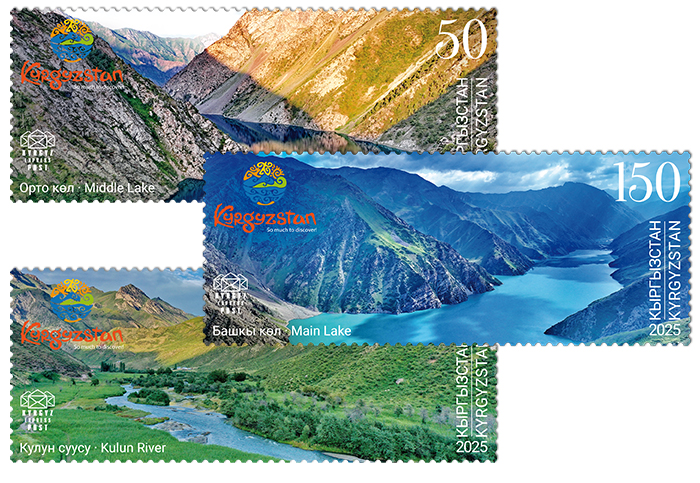
Pearls of Kyrgyz Nature. Kulun Lakes
Newsletter no. 113.pdf
On September 1, 2025 the Ministry of Digital Development and
Innovative Technologies of the Kyrgyz Republic puts into circulation a series of Kyrgyz Express Post postage
stamps: "Pearls of Kyrgyz Nature. Kulun Lakes".
The new stamp issue of KEP continues the "Pearls of Kyrgyz Nature"
series and is dedicated to the Kulun Lakes.
The unique high-mountain lake system of Kulun is located in the Osh
region of Kyrgyzstan at an altitude of 2,856 meters above sea level, within the territory of the Kulunatin
State Nature Reserve. The system includes three lakes: the Main, the Middle, and the Small. The Kulun lakes
were formed as a result of an earthquake. The Main Lake is 4.6 kilometers long, 0.7 kilometers wide, and has
a surface area of 3.25 square kilometers. Its maximum depth reaches 91 meters. The water in the lakes is
fresh and crystal clear. The lakes are situated in a picturesque zone of alpine and subalpine meadows and
are surrounded by large forested areas.
According to Kyrgyz legend, the Kulun Lakes were formed from the
tears of a wild mare named Sur Bee. While saving her foal (“kulun” in Kyrgyz means “foal”) from wolves, she
desperately called on the mountains for help, which sent massive rocks tumbling down on the
predators.
The KEP stamp with a face value of 50 som, as well as the FDC,
features the Middle Lake. The 150 som stamp depicts the Main Lake, while the 300 som stamp presents the
Kulun River, which flows out of the mountain-lake system.
The Kulunatin State Nature Reserve was established in 2004 to
preserve the flora and fauna of Kyrgyzstan, including its rich juniper and coniferous forests. The reserve
is home to more than 800 plant species. Some of them are presented on the coupons of the minisheets: Common
yarrow (Achillea millefolium), Racemiferous pearly everlasting (Anaphalis racemifera),
Tarbagatai columbine
(Aquilegia lactiflora), Clinopod ziziphora mint (Ziziphora clinopodioides), Semenov's roseroot
(Rhodiola
semenovii), Milky-white felwort (Swertia lactea), Rosebay willowherb (Epilobium
angustifolium), and
Komarov's Angelica (Angelica komarovii).
All KEP stamp issues in the “Pearls of Kyrgyz Nature” series
feature the official tourism logo of Kyrgyzstan. KEP is grateful to the Department of Tourism under the
Ministry of Economy and Commerce of the Kyrgyz Republic for granting the right to use this logo on our
stamps.
KEP also expresses its great appreciation to the Kyrgyz
photographer Vladislav Ushakov, whose photographs, as in the first issue of the "Pearls of Kyrgyz Nature"
series, were used in preparing this stamp issue. We are confident that this issue will contribute to the
preservation and enrichment of the unique nature of Kyrgyzstan.
For this series, KEP also issues three postcards, which are used to
realize three maximum cards.
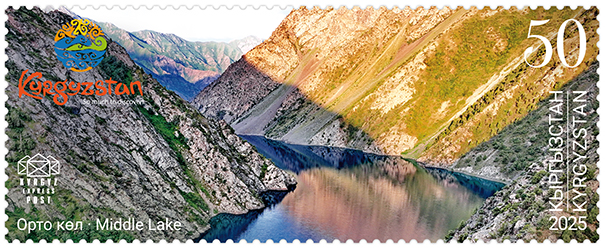
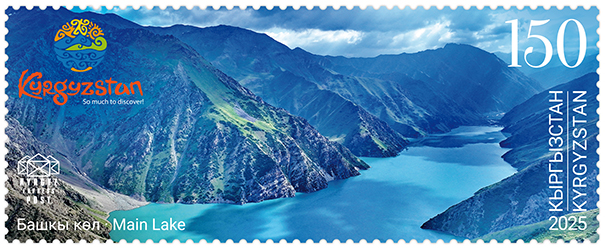
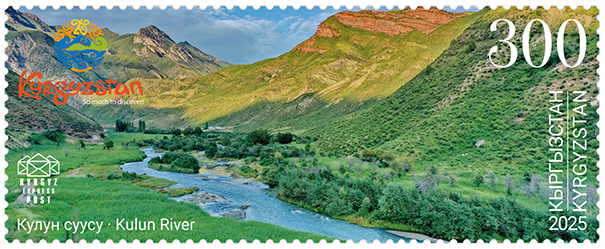
Stamps description
No. 253. 50 KGS. The Middle Kulun LakeNo. 254. 150 KGS. The Main Kulun Lake
No. 255. 300 KGS. The Kulun River
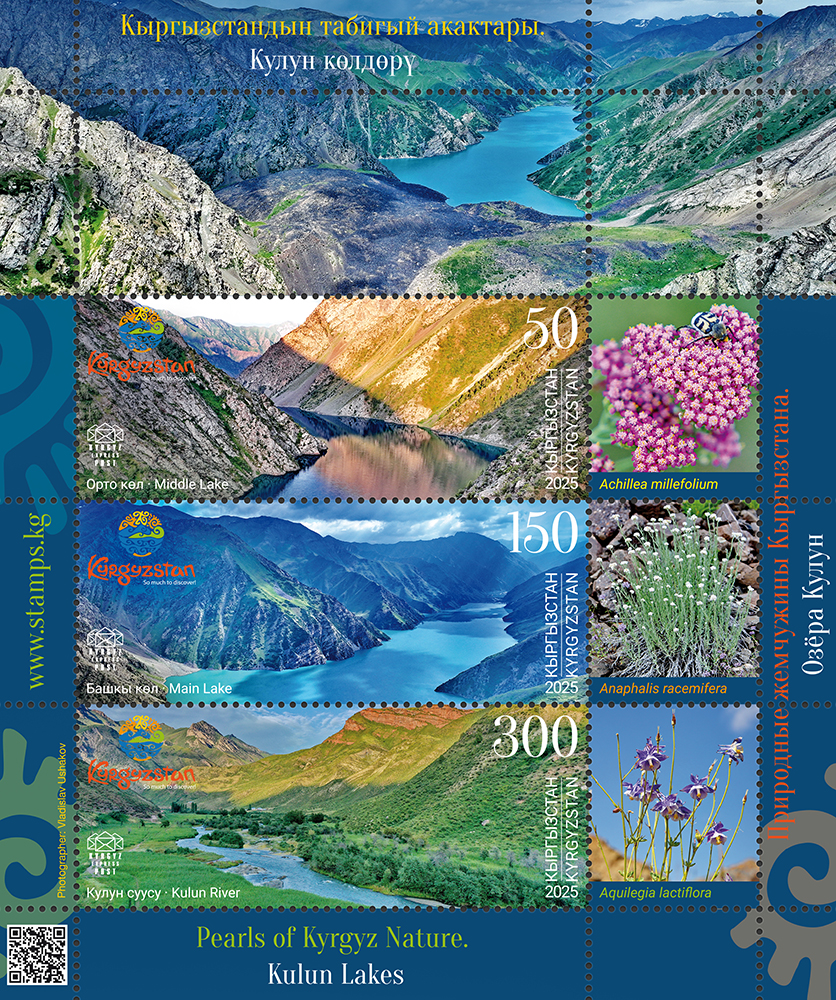
Technical specifications
Paper: coated, gummed, 105 g/m².Printing method: full-color offset lithography.
Stamps perforation: comb 14:14½.
Stamps size: 69 × 27.5 mm.
Stamps are issued in minisheets of 4 stamps with
five labels. Stamps are also issued in a collective
minisheet of three stamps (one complete set and
five labels).
Minisheets size: 182 × 108 mm.
Collective minisheet size: 113 × 135 mm.
Quantity issued: 6 000 pieces each stamp
(4 000 in minisheets plus 2 000 in collective minisheets).
Photographer: Vladislav Ushakov.
Designer: Daria Maier.
Printer House: "Nova Imprim" (Chișinău, Moldova).
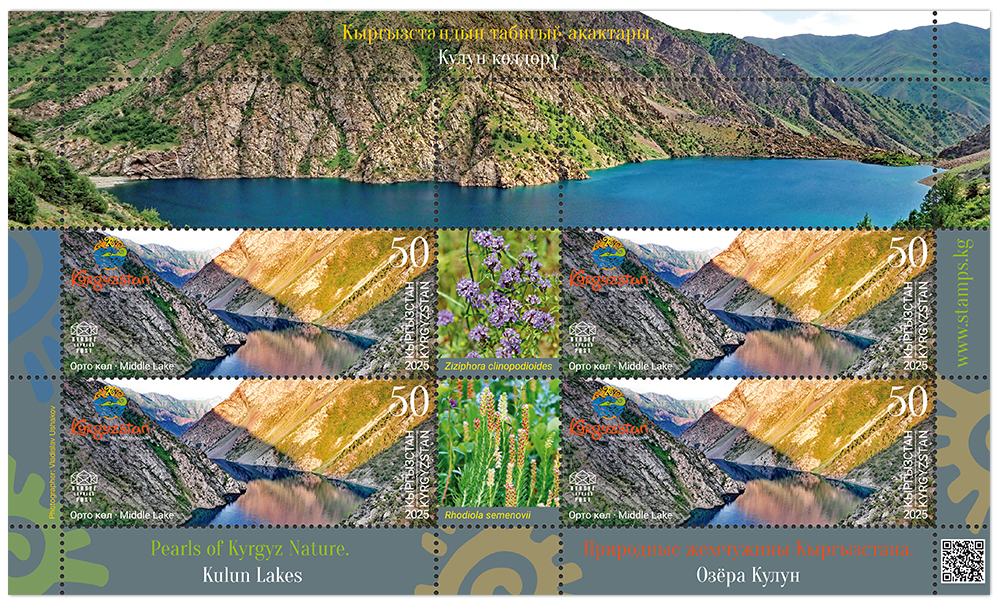
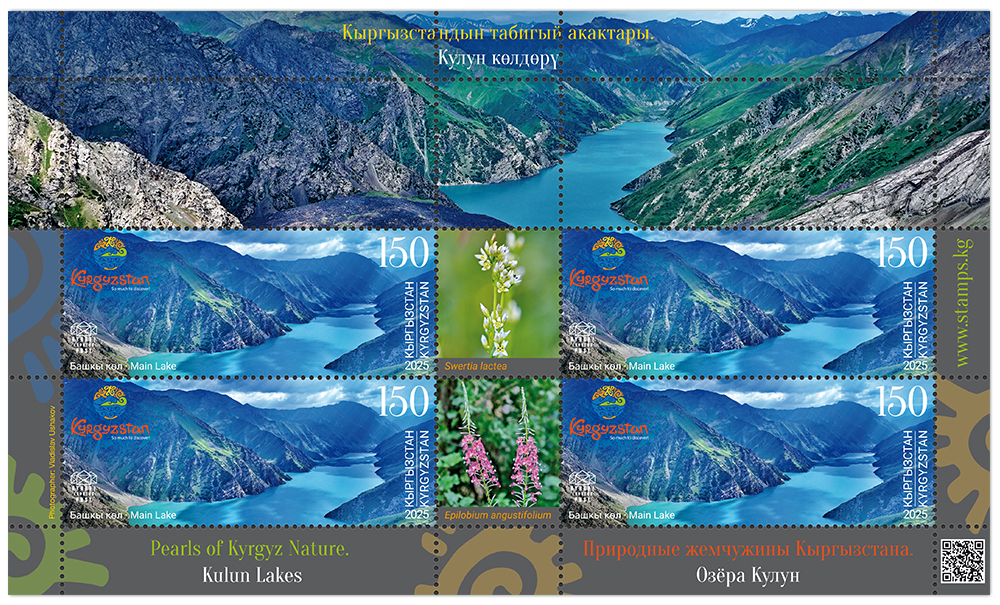
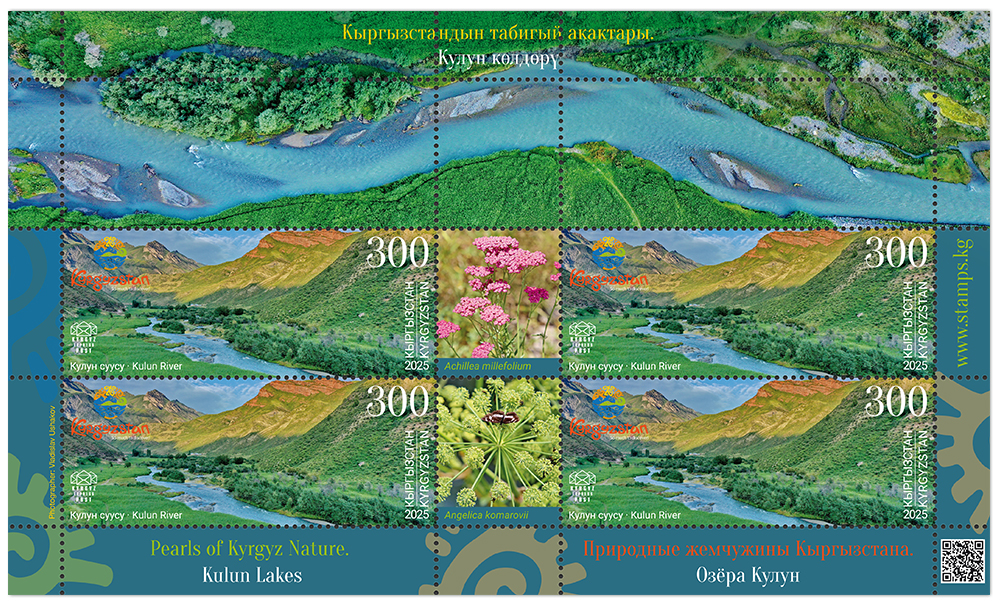
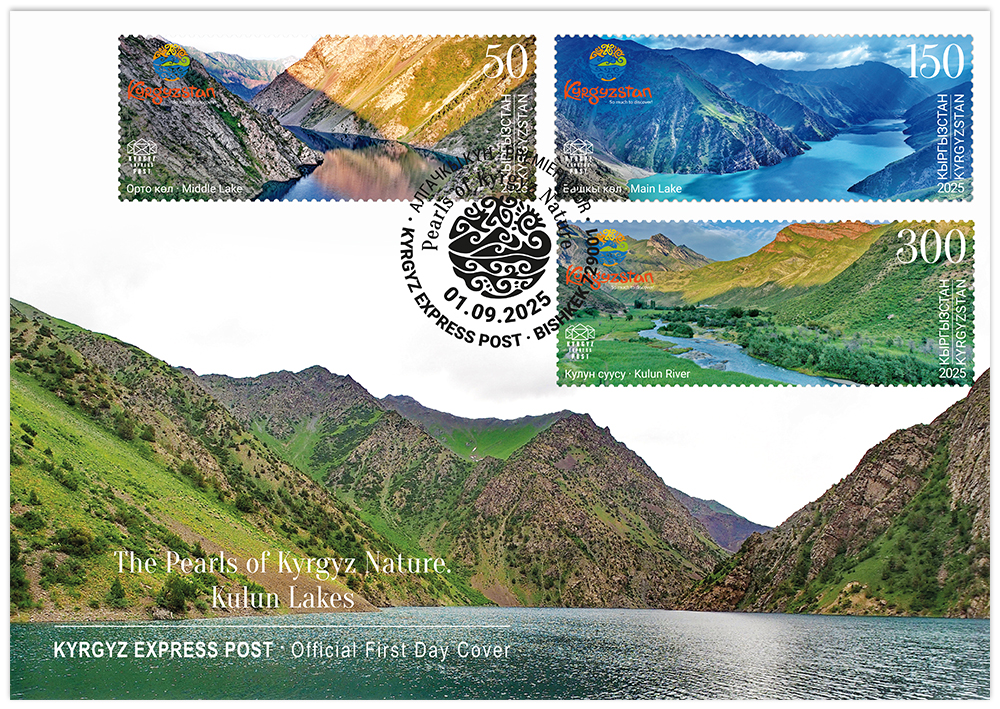
A special cancellation on FDC will be carried out at the Bishkek KEP Office (729001) on the stamps issuing day.
The first day cover, postcards and special
postmark are designed by Daria Maier.
Photographer: Vladislav Ushakov
Cover size: С6 (162 × 114 mm).
Quantity of covers issued: 300 pieces.
Quantity of postcards issued: 300 pieces each.
Endorsing ink color: black.
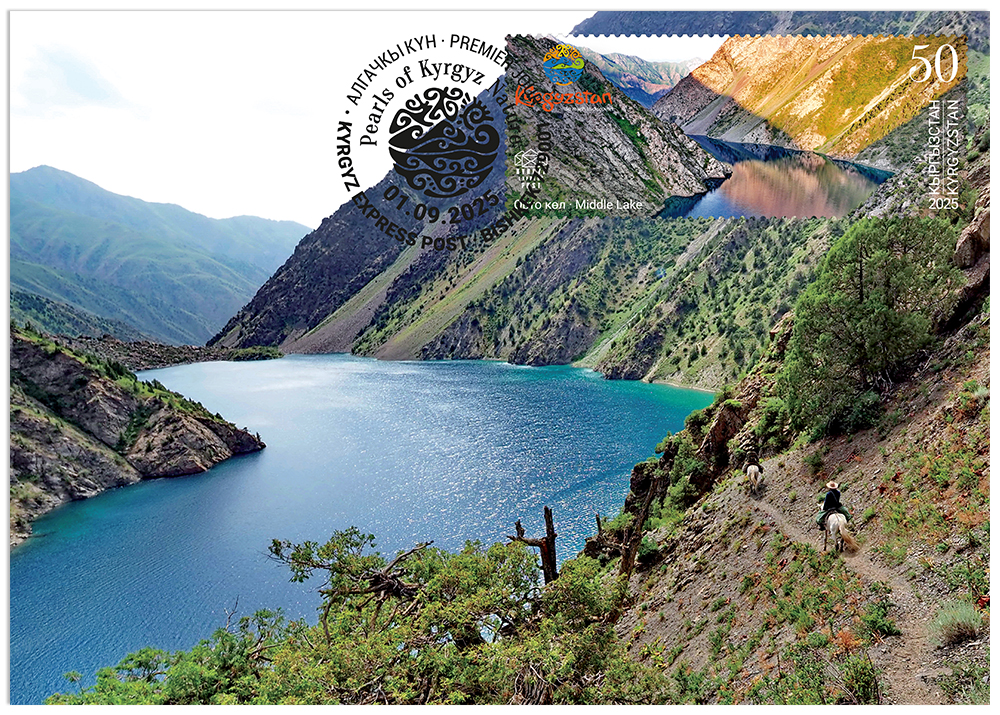
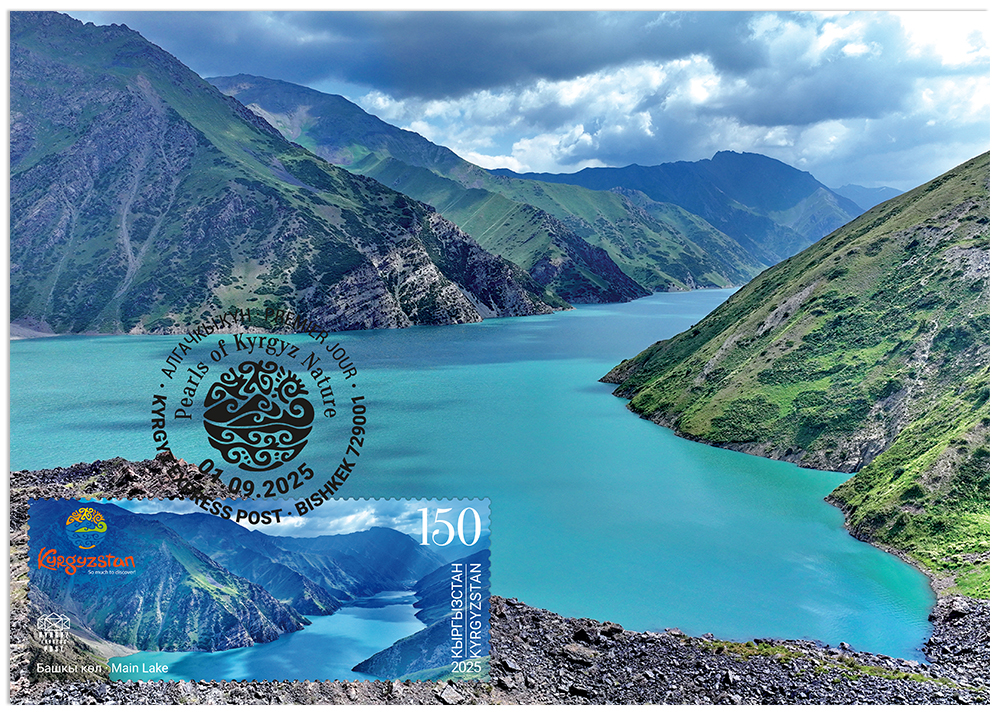
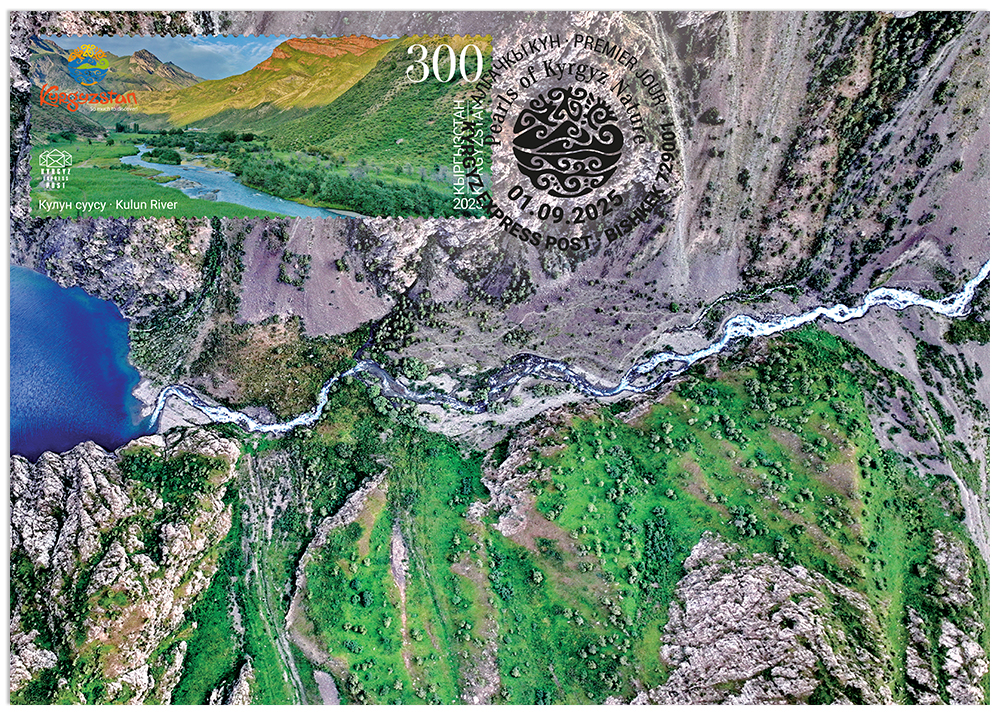
Stamps, maximum cards and FDCs can be purchased here.



